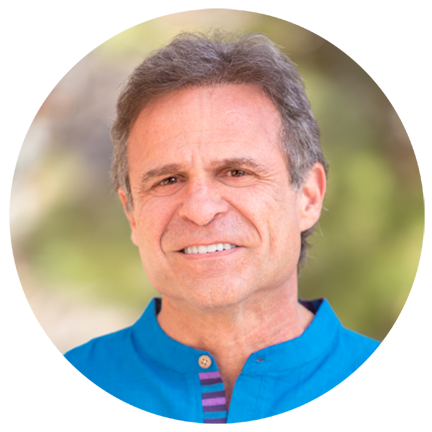What is the Best Treatment for Substance Abuse? Going through multiple treatments for substance abuse, only to find they don’t work for you, can be overwhelming.
Sometimes, the fear of relapsing feels like a trap. It clouds our thoughts and keeps us from trying new treatments. Other times, we feel bogged down by trying to find that ‘perfect’ path.
When it comes to finding treatment for addiction, there’s no one right answer. That’s because substance abuse recovery doesn’t follow just one path. What works for you may not work for someone else, and that’s completely normal.
If your initial treatment program didn’t work out, that does not mean you failed. You’ve discovered what doesn’t suit you, and that opens up the door to explore new avenues.
There are a number of treatment options for substance abuse recovery out there. These range from conventional 12-Step programs to non-12 step holistic treatments.
What are the Different Treatment Modalities for Addiction Recovery?
Our understanding of addiction recovery is continually expanding. New scientific discoveries about the brain and addiction are presented year after year. There used to be shortcomings in the treatment options available, but we now have numerous proven treatment methods.
Some treatment modalities often offered in rehab programs include:
Cognitive Behavioral Therapy (CBT)
CBT is a type of talk therapy that helps you manage negative thought patterns that can lead to substance abuse.
How it works: A professional will guide you in identifying certain triggers and help you discover healthier ways to respond.
How this helps: Your thoughts, feelings, and actions are connected. By being aware of specific, challenging thoughts you have, you can learn to respond without turning to substances.
Psychodynamic Therapy
Psychodynamic therapy is another type of talk therapy that focuses on exploring your subconscious thoughts, which can glean insight into any deeply rooted addiction issues you may have.
How it works: Your therapist will help you work through your emotions to uncover any underlying issues or past trauma.
How this helps: Whether or not you’re aware of it, your subconscious mind influences your behavior. By understanding your subconscious thoughts, you gain a new level of self-awareness. Identifying any underlying causes for substance abuse allows you to discover healthier ways to heal and can be a rewarding process in and of itself.
Motivational Enhancement Therapy (MET)
MET is based on the principles of motivational psychology and focuses on motivating change within.
How it works: You’ll start with an initial therapy session followed by two to four additional sessions. In these, you’ll learn ways to overcome self-defeating thoughts attached to addiction and strengthen your desire for a new way of life.
How this helps: Internal motivation is one of the most powerful forces for evoking life changes. By working on your self-motivation, you can reframe negative self-thoughts and feel more empowered to create positive life changes.
Family Therapy
Family therapy helps family members understand the recovery process, engage in more open communication, and repair family relationships.
How it works: Your therapist will sit down with you and at least one other family member to facilitate understanding and healing.
How this helps: Our upbringing and family of origin inform our behaviors. By addressing family relationships, you can identify any underlying family issues that may have influenced substance use and develop healthier family relationships. Building an empathetic support system of family members helps the recovery process, especially during outpatient treatment.
Holistic Therapies
Holistic therapies address your entire wellbeing.
How it works: A holistic rehab views you as a unified network, with different parts coming together to make up that network. Holistic therapies are designed to treat all these parts. They can include ecotherapy, bodywork, nutritional therapy, energy healing, and many more.
How this helps: Substance abuse affects more than just the mind. The body, soul, and spirit are also impacted. By going beyond managing symptoms, you can treat addiction issues that conventional therapies may overlook.
Rehab centers will generally use a combination of these treatments in their program. One size doesn’t fit all when it comes to substance abuse treatment – you may find that some therapies work well for you while others don’t.
At The Sanctuary, we don’t have limitations on the therapies you can explore. We encourage all our clients to discover the path that suits them best. If you find therapies that work well for you, we facilitate that, and make sure to include it in your program and continued care.
Where Does Someone Usually Receive Treatment for Substance Abuse?
Treatment for substance abuse can either happen onsite (inpatient) or offsite (outpatient).
Inpatient Rehab
An inpatient rehab brings you onto the rehab grounds, where you’ll live with others in the program. Here, you’re in a safe environment away from stresses and triggers, with 24-hour access to care and the opportunity to fully immerse in the surrounding environment. The length of time you spend at inpatient rehabs can range from 30 days up to 6 months or more for long-term residential programs.
Outpatient Rehab
With outpatient programs, you receive treatment while continuing to live at home. This allows you to receive treatment while keeping up with life responsibilities. Outpatient treatments are usually offered as a continuation of an inpatient program. But there are also standalone programs in which you attend therapy sessions at a nearby clinic.
What Different Substance Abuse Recovery Programs are Available?
Most rehabs in the US are either 12-Step-based or non-12 Step.
The 12-Step model is a series of steps that guide you toward sobriety. A core component of the 12-Step approach includes admitting powerlessness over addiction and accepting that addiction is a lifelong disease. The 12-Step approach often includes a support group of people all working towards sobriety and helping each other stay sober. Having a strong support system is an important part of addiction recovery, with many finding it essential to their journey.
Some people see the 12-Step program as a good start but feel that it doesn’t get them to where they want to be. This can push them to search for non-12-Step rehab programs, which are essentially just programs that don’t follow the 12 Steps.
Many who come to The Sanctuary have tried 12-Step-based programs before. While they found the 12 Steps to be initially helpful, they felt something was still missing and wanted a different approach.
Discover a New Path to Addiction Recovery at The Sanctuary
A number of our clients come to The Sanctuary after discovering that conventional treatment methods don’t work for them.
What they find during their time with us is a unique approach to substance abuse recovery underpinned by the fundamental belief that it is possible to be recovered.
Our holistic non-12-Step program is designed to help you identify and heal the root cause of your addiction issues so that you can find true life fulfillment outside of substances.
Here’s what some of our past clients had to say:
“Calling it a rehab center doesn’t do it justice. It’s a journey to discovering your true authentic self.”
“You’ll rediscover laughter, passion, and find meaning in this disconnected world we live in.”
Begin your journey towards a life free from addiction – one where meaning can be found in every moment. Contact us today to get started.
He is the Founder, Administrator, Counselor at the Sanctuary at Sedona. He has a BA in Political Science and is currently Senior teaching staff at Four Winds Society, an international school of energy medicine. His credentials also include being an Ordained Minister; a Certified Shamanic Breathwork® Facilitator; a Founding Member Society for Shamanic Practitioners; a Member of Association for Comprehensive Energy Psychology; a Member of the National Institute for Holistic Addiction Studies. [email protected]

